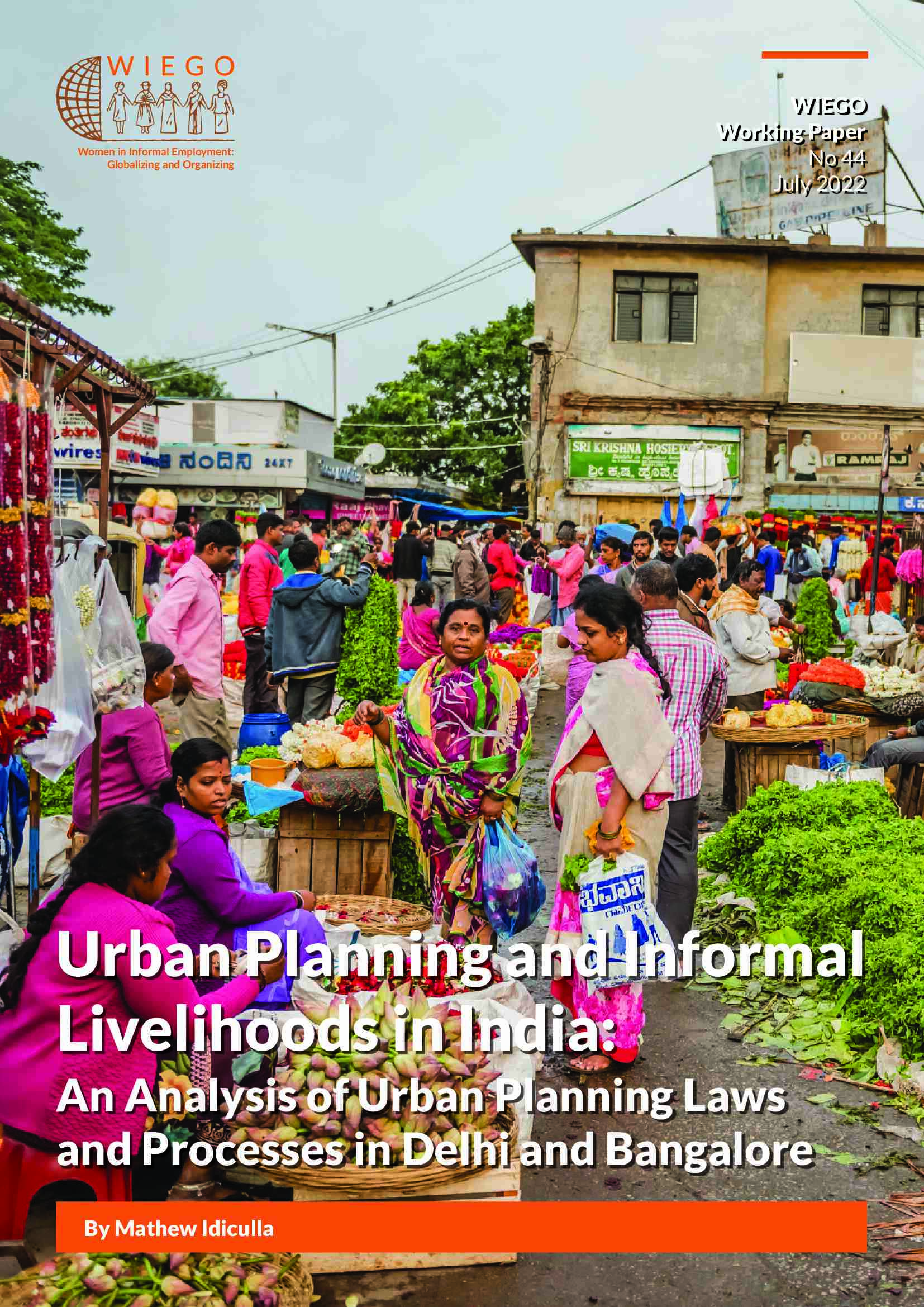Urban Planning and Informal Livelihoods in India: An Analysis of Urban Planning Laws and Processes in Delhi and Bangalore
This paper seeks to critically analyze the legal framework of urban planning in India and the challenges and opportunities it presents informal workers. It examines how planning laws, processes, instruments, and practices in Delhi and Bangalore impact informal livelihoods and the scope they present informal worker organizations to engage with the planning process.
The legal framework of urban planning shapes the way in which urban plans are prepared and implemented and determines what developments and activities are legally permissible. Understanding the legal framework of urban planning is important as it regulates whether, and how, informal workers can access public space, conduct their work, and pursue their livelihoods.
This paper examines questions regarding who has the authority to plan, whether the planning process is participative, and how the plan is contested and implemented on the ground in Delhi and Bangalore. It closely analyzes the provisions of the Master Plan for Delhi–2041 and two urban planning initiatives in Bangalore to understand how planning instruments and practices regulate and impact informal workers.
The authors argue that India’s urban planning law framework institutes a top-down planning exercise in which bureaucratic agencies with no local-level accountability prepare the plans in a process that offers limited scope for participation by stakeholders like informal workers.
View list of all: Working Papers

